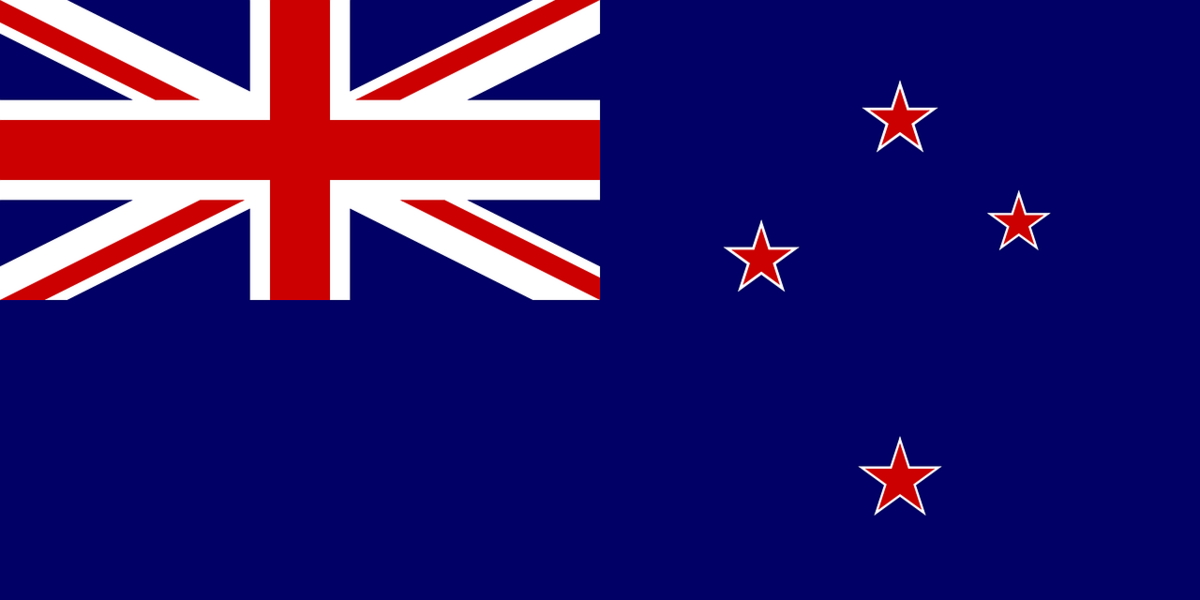COVID-19 entry restrictions
- Entry restrictions have been lifted according to New Zealand Immigration. Proof of vaccination is no longer required, but travelers are advised to confirm this with the airline.
- Upon arrival, travelers will be given rapid tests that can be used voluntarily on the first day and on day five or six. If the result is positive, seven days of self-isolation is required.
Entry and visa
Entering the country
Entry is possible with the following documents:
Passport: Yes
Provisional Passport: Yes
ID card: no
Provisional identity card: No
Child Passport: Yes
Validity of Passport
Upon entry, travel documents must be valid for at least one month beyond the intended period of stay.
Visa
Citizens of the countries listed here do not need a visa for entry and a stay of up to three months as a tourist or business traveller, but must be in possession of a return or onward flight ticket and, if requested by the immigration authorities, be able to present proof of sufficient funds to finance the stay. Since October 1, 2019, they also need an electronic entry permit NZeTA.
Electronic Travel Authorization NZeTA
- The NZeTA electronic entry permit can be applied for online or on mobile devices via the NZeTA app and is also required for a stay in the transit area. There is a fee to apply for the NZeTA (NZD 12 for online registration, NZD 9 for mobile app registration).
- In addition, since October 2019, a newly introduced tourism tax (International Visitor Conservation and Tourism Levy IVL) has been required upon registration, which is intended to flow into infrastructure and environmental protection projects for a more sustainable tourism industry.
- Once issued, the NZeTA is valid for any number of entries for a maximum of 90 days each within a period of two years.
- The responsible New Zealand Immigration recommends that the application be submitted at least 72 hours before departure if possible
Visa for other purposes of residence
For other purposes of stay, e.g. A visa is required for any form of gainful employment or for longer stays. For more information, contact the New Zealand Immigration Service.
Visa types
Academic Visitor Visa
- Participation in teaching, training, or research activities
- Length of stay up to 3 months
Necessary documents:
- Letter of invitation from the receiving institution
- Proof that you have sufficient financial resources for the duration of your stay
- return ticket
Work visa
- If you wish to stay in New Zealand for more than 3 months in a calendar year, you must apply for a work visa.
- If you want to take up a job that is not related to research activities, you must apply for a work visa.
- Here you will find the different options.
Money and banks
Getting cash and exchanging currency
- The official currency is the New Zealand dollar (NZ$). Nearly everywhere, it is possible to get money from cash machines and make payments using credit cards.
- We do not recommend exchanging euros for New Zealand dollars before travelling, as German banks offer a worse exchange rate than banks and exchange offices in New Zealand.
- Upon arrival at the international airports, you will find bank counters and exchange offices where you can get your first New Zealand dollars.
- You should, however, not exchange large amounts at the airport as the exchange rates there are usually less favourable than in the cities.
- Tip: The exchange offices in the cities usually offer the best exchange rates .
Opening an account
If you are going to stay in New Zealand for a longer period and will earn a salary there, you can open an account with one of the major banks:
➛ Westpac Bank
➛ BNZ (Bank of New Zealand)
➛ ANZ Nationalbank
➛ TSB
➛ HSBC
➛ Kiwibank
To open a bank account you need: a copy of your passport, documentation of residence and a completed application form.
Healthcare
- Medical care in New Zealand is good, both in the large cities and in the smaller towns.
- Hospitals are well-equipped and doctors are knowledgeable and very friendly.
- Hygiene standards are comparable to those in Western Europe.
- Nevertheless, it is also advisable to inform yourself about health insurance for stays abroad and take out a policy if necessary.
Phone and internet service
The main mobile phone service providers in New Zealand are:
Currently there are only few free WiFi options in New Zealand, however, the situation is improving all the time. You can find free WiFi hotspots mainly in urban areas, but rarely in smaller cities or rural areas.
Buy prepaid packages in New Zealand
The providers offer different prepaid packages including SMS, free minutes and data volume.You can buy prepaid cards directly from the shop of the respective provider. Some supermarkets also sell prepaid phone cards
Order your prepaid package online ahead of time
Alternatively you can also order prepaid phone cards online before your trip.
Transportation and driving licences
Infrastructure/traffic
- Cars drive on the left side of the street.
- The development and condition of the roads differs significantly from the conditions in Central Europe.
- Multi-lane motorways and roads exist only on a few, comparatively short sections in the urban areas of Auckland (up to Hamilton), Wellington, Christchurch and Dunedin.
- The majority of state and country roads in New Zealand are single lane, winding and narrow. Secondary roads are often not asphalted everywhere.
Driving licence
Driving licences from abroad will be recognized for a maximum period of one year from the date of entry, but you might have to provide a certified translation in English.
An international driving licence is not compulsory, but it is recognized as a translation in conjunction with the national driving licence.
The New Zealand Transport Authority provides more information, including addresses of recognized translation facilities.

